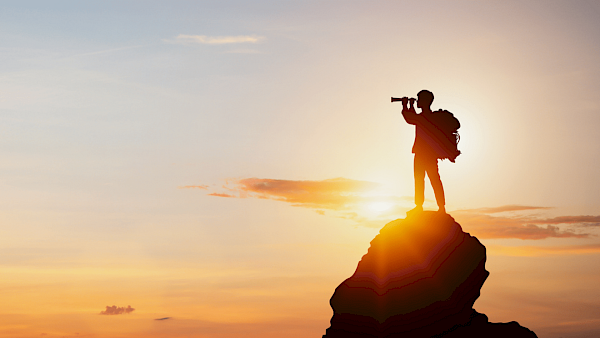Episode transcript The transcript is generated automatically by Podscribe, Sonix, Otter and other electronic transcription services.
Hi everyone, here is Ricardo Vargas and this is the 5 Minutes Podcast. Recently some friends asked me, Ricardo, how do you scan the environment to understand which type of risks each, which type of trends we need to be aware of, for example, to protect our projects or to benefit our projects from potential opportunities. And I explained what I do. So first, of course, during the whole year, I try to get informed. I try to get informed by, of course, the media. For example, I subscribe to several magazines and newsletters. But one important point I want to highlight here is that I do not subscribe to only one point of view, a magazine, and I like to subscribe to magazines that, uh, present a very different contrast. I would say not, please not. I'm not saying politically and I'm just explaining this for the sake of this episode is not from the left or the right in terms of political views, but I want to see, of course, I read from the left to the right on political views too, but I want to see different views. I don't want to read ten newspapers where all of them agree with the same thing. I want to see the disruption. I want to see a different thinking. Why? It's not because they impact me, but they make me see things through different lenses.
And at this time, that is close to the end of the year. I really like, I do for many, many years I like very much to reading. One publication from The Economist, the magazine The Economist called the year ahead. It used to be the World In, and it's a it's an amazing publication talking about the trends, and what may happen in the upcoming year. And I do that not because I have any influence on what will happen next year, but at least I know what the current thought in terms of trends, in terms of geopolitical trends, in terms of business trends, in terms of taxes, tariffs, you know, movement of goods. Why? Because all of this impacts dramatically my personal projects and the impact dramatically on the projects I'm working with. So I need to have because at least these will help me to craft better risk responses. It will allow me to prepare more, for example, for an unfavorable scenario in my project. What I cannot do is just to be blind to these types of events. You know, saying, no, nothing will happen. Nothing will happen until it happens. So this is why I love the concept of environmental scanning. I do this pretty much every day. I spend something like 15 to 20 minutes to know what's going on, to know what is in the news, to know what I should do, how I should do it, how I what can be the impact, for example, of a global trade war in the projects I'm doing? I'm not I'm not a policymaker, but in my projects, because some of us may think, oh no, these will not affect us because I'm, I'm, for example, my clientele is, you know, is a local clientele.
Don't be naive. Everything is far more connected to what we think. So we need just to be mindful. And this is why, for example, I love to do this environmental scanning. And this is exactly what I'm doing now with the big ideas. So because I'm releasing these ten ideas one per day, I was not the one who built them. No, not at all. But based on what I read already, based on all these reviews of 2024 and also looking ahead to 2025, I decided to put these ten ideas that are affecting me, and I decided to share these with a broader audience through these posts on LinkedIn, on my YouTube channel. Because to foster this discussion, to foster us, to think that maybe, maybe we will have a Project Management as a digital twin doing the tasks of a project. We may have that. I'm not saying we will, but we may have, for example, mixed reality, bringing all the technology, uh, to our workplace where we will maybe navigate inside a project environment without physically being inside the project.
We are talking about the sense of purpose of Gen Z, the generation Z, that they are not looking just for profit or for a bottom line at the end. I'm not saying that they don't care about money. Of course, they care about money. But it's not only about that. So these kinds of trends are very helpful for all of us to give us insight into which direction we should shift our gears towards the future. So this is how I do that. It's by reading, by taking very different perspectives, and by challenging myself many times when I have common sense thinking, because common sense is super dangerous, because when you think common sense, then most of the time you become blindfolded to different things that may arise, that may, you know, create a surprise in the way you see things. So think about that and you will see more big ideas coming up. And this is part of all my efforts I'm doing to help people to navigate towards this change, in our personal projects and also our working projects or our company or our job projects, okay? I hope you enjoyed this podcast and see you next week with another 5 Minutes Podcast.

